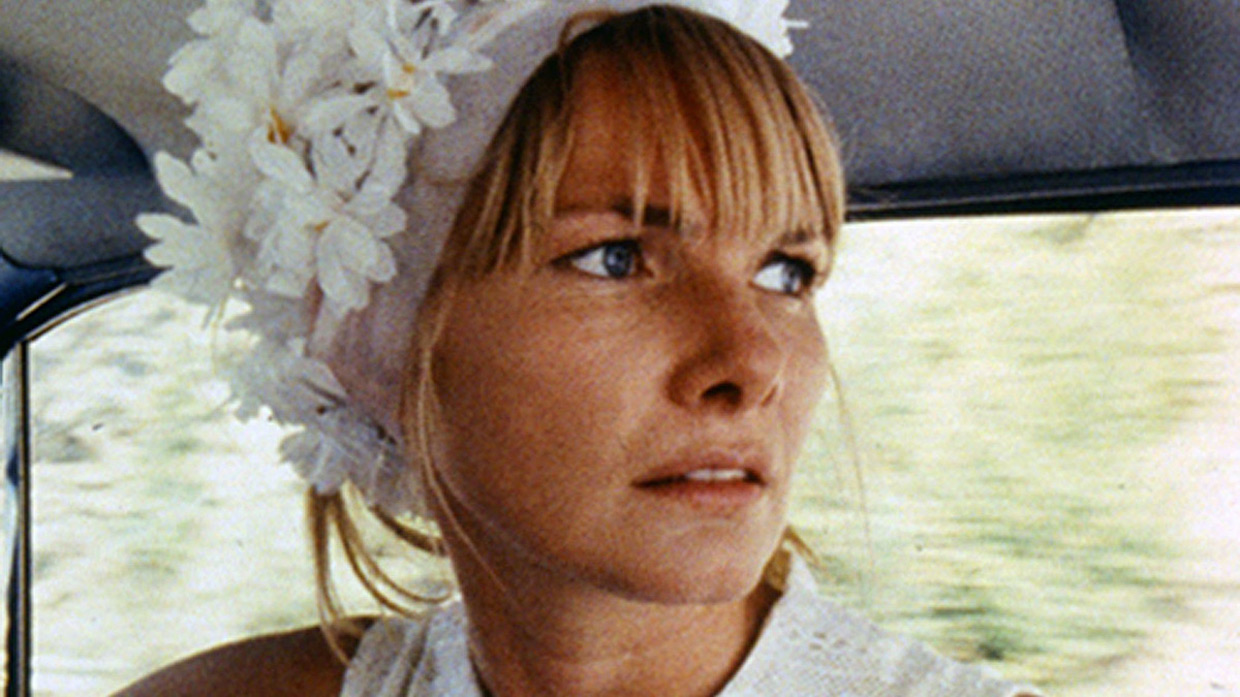WANDA

(Barbara Loden’s singular film Wanda is now playing as part of BAM Cinema‘s Method on Film series. Seen it? Join the conversation with HtN on our Letterboxd Page.)
Amongst the pantheon of aimless, nihilistic late-‘60s / early-‘70s made-in-the-U.S.-of-A. cinema is its arguable pinnacle, the absolutely stunning and existentially grim Wanda, released in the aftermath of Easy Rider and Brandy in the Wilderness, preceding by a handful of months the similarly grand Two-Lane Blacktop and Glen and Randa. Anyone steeped in the bitter tea, text-wise, of Charles Willeford or Lionel White (both expert visualizers on-the-page of American despair) will recognize the post-war (Korean) ‘50s spilling into the free-love era of the next-war (Vietnam) ‘60s while an identical atmosphere of “what the fuck are we doing and why are we doing it?” persisted, unanswered.
What remains fascinating about Wanda, a half-century later, is its unique protagonist—played by its writer / director, Barbara Loden—who instigates nothing. She is someone to whom things happen. For the most part, she earnestly goes along with whatever is thrown her way. For instance [numerous spoilers ahead], when her children are about to be taken away from her by the court, she begrudgingly mumbles that perhaps they’d be better-off with their father. When she later discovers that her latest gentlemen-friend is a thief, she is neither scared nor discouraged nor alarmed whatsoever.
Outside of the titular character and her mid-film paramour (portrayed by an equally fabulous Michael Patrick Higgins Jr.), the cast is populated with non-professional actors. In fact, essentially anyone on the screen except for these two is appearing in a motion picture for the first—and last—time. Those performances, characteristically, are generally described as “naturalistic” although that supposes that they could or would be much of anything else.
Even in comparison to other works of the era, Wanda is essentially without obvious parallel. The plot is a thread stitched into a pattern of distress with its parade of no-good men taking advantage of Wanda’s propensity to please. The lone exceptions are bookended: her sister, who has given Wanda a momentary place to stay in the opening moments of the film; and, in its closing scenes, when a female passer-by invites her to join a group of revelers at a nearby roadhouse. Is she likely, in this final moment, to arrive at a transformative change-for-the-better? The final freeze-frame suggests that everything will continue careening in the same general direction.
Critics then and (several) now generally reference these details as examples of its failings. This unvarnished snapshot of poverty wasn’t considered viable subject matter for many audiences at the time (or even in the present). “American exceptionalism” this isn’t.
Regardless, Wanda is an absolute low-key masterpiece. Naysayers be damned. If you require further encouragement and validation, the film won “Best Foreign Film” when it screened way-back-when at the Venice International Film Festival and it was selected for the National Film Registry in 2017. Wanda is also, sadly, a singular work. Loden had other feature-length projects she’d intended to complete—an original screenplay entitled A Movie Star of My Own along with adaptations of Frank Wedekind’s Earth Spirit [aka Lulu] and Kate Chopin’s The Awakening—yet she ultimately completed merely two additional short films prior to her premature death in 1980.
[Screening at BAM with other film classics of the Method—notably Wild River, The Pawnbroker, A Place in the Sun, A Streetcar Named Desire—along with a handful of films that should be more widely-seen—Symbiopsychotaxiplasm: Take One, The Queen of Spades—mixed with a handful of absolute rarities—particularly Joe McSween’s Atomic Machine, Anna Lucasta and American Matchmaker.]
— Jonathan Marlow [@aliasMarlow]
Wanda (1970) dir. Barbara Loden [102min.] Foundation for Filmmakers / UCLA Film & Television Archive / Criterion Collection











